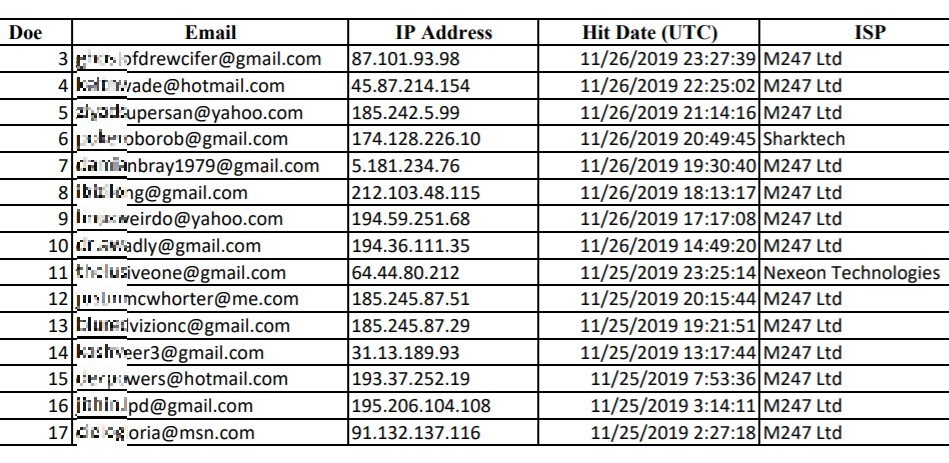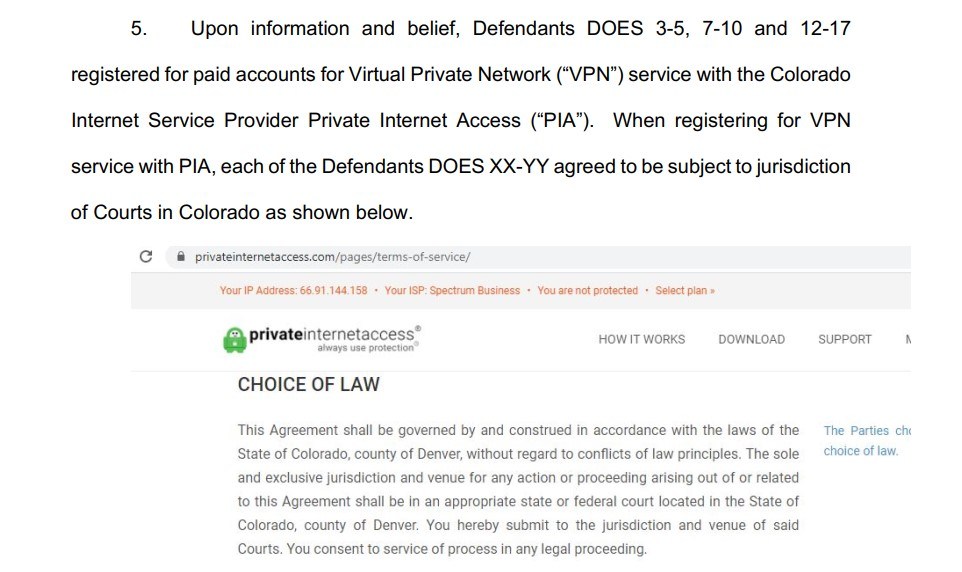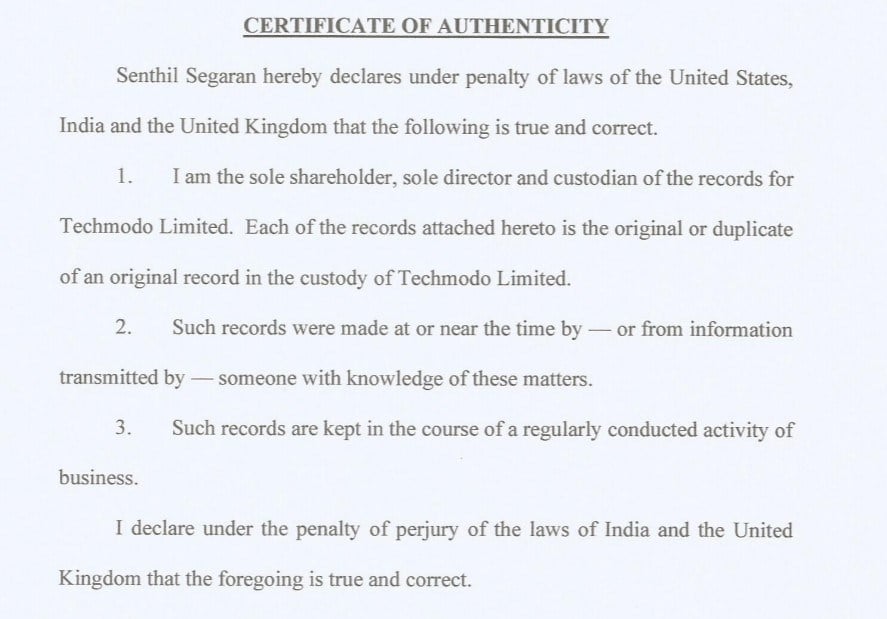-
chevron_right
Movie Company Demands $10K From BitTorrent Pirate, Court Awards $750
Andy Maxwell · news.movim.eu / TorrentFreak · Saturday, 31 October, 2020 - 21:38 · 4 minutes
 After roughly two decades of pirated movies being shared online, movie companies are still trying to find a way to stem the flow.
After roughly two decades of pirated movies being shared online, movie companies are still trying to find a way to stem the flow.
Despite its aggressive actions elsewhere, most Hollywood studios have largely shied away from targeting individual pirates with lawsuits. The same cannot be said about a relatively small subset of companies, who are very happy to target thousands of them worldwide, demanding cash settlements in lieu of a drawn-out court battle.
LHF Productions, one of the companies behind the blockbuster movie ‘London Has Fallen’ is one such company and over the years has filed lawsuits against alleged pirates in both the United States and Europe. In the former, the company has enjoyed some success but a case that has just gone all the way in the US, without the defendant mounting even a basic defense, hasn’t gone exactly to plan.
Multiple Defendants Targeted in a Utah Court
Early 2017, LHF Productions filed a lawsuit against 30 alleged pirates in a Utah court, claiming they downloaded and shared London Has Fallen using BitTorrent. The case has rolled on for more than three years, with various defendants removed from the action after appearing to reach settlement agreements with LHF.
The details of these settlements are private but one defendant, named as Amanda Steel, hasn’t played ball from the start. Mounting no defense, the alleged pirate could have faced a huge damages award but this week, in an order handed down by District Judge David Nuffer, Steel got off quite lightly.
Plaintiffs Demanded $10,000 in Damages, Judge Says No
After failing to respond to the lawsuit, Steel could’ve been on the hook for $150,000 in statutory damages, in theory at least. In the event, LHF put in a demand for a default judgment of $10,000 as well as a permanent injunction but the Judge wasn’t happy with that lowered figure either.
The judgment reveals that the Judge was satisfied that a default was warranted in this case and accepted the plaintiff’s allegations that the infringement was willful. This meant that Steel was facing a potential damages award of between $750 and $150,000, at the Judge’s discretion.
LHF argued that its $10,000 demand was reasonable and at a level that would deter future infringement. The company also cited five cases from other jurisdictions where that amount was deemed acceptable to the courts.
For example, one case dating back to 2012 saw the defendant hit with $1.5m in damages for pirating 10 movies. However, Judge Nuffer said that in that matter, no findings or conclusions were officially entered on file, other than the allegations and default. Another case two years later, where a default judgment of $10,000 was awarded for infringement of a single movie, was deficient in the same regard.
The Judge went to state that in the cited cases, the courts were willing to grant the requested amount in statutory damages, provided they did not reach the statutory maximum. He concluded that was likely due to the plaintiffs being unchallenged by the defaulted defendants. Describing the cases as lacking in “meaningful analysis”, the Judge concluded that along with several other similar cases between 2012 and 2017, they were “not persuasive.”
Other Courts have Awarded Substantially Less Than $10,000
Outside of the cases cited by LHF, the Judge noted that some courts had developed and applied factors that led to greater consistency in statutory damages awards against defaulted defendants. A Malibu Media case in 2014, for example, awarded $750 on the basis that the plaintiff provided very little factual detail regarding the defendant’s actions. Other cases shared similar traits.
In his decision, Judge Nuffer decided to apply six factors previously outlined in a 2016 case involving Malibu Media; whether the defendant was the original seeder, whether the defendant profited or saved money from the infringement, the plaintiff’s actual losses, whether the damages amount would result in a “windfall” for the plaintiff, the deterrent effect of the damages, and the defendant’s willfulness and intent.
The Judge in this case weighed those same factors and determined that in the absence of evidence to the contrary, the request for $10,000 in statutory damages was over the top.
Judge Nuffer found that there was no evidence that Steel was an original seeder, no evidence relating to the number of users in the BitTorrent swarm, and no evidence showing how many people downloaded the file from the defendant’s computer. On top, the Judge said it was reasonable to conclude that the only monetary gain made by the defendant was the money saved on renting or buying a copy of the movie and the losses for the plaintiff would’ve been the same amount.
Given the above, $10,000 in damages would result in a windfall for the plaintiffs and at around 25 times the amount it would cost to rent or buy the movie, $750 would act as a deterrent. In respect of the defendant’s intent, LHF provided inadequate evidence.
“Ultimately, considering the relevant factors collectively, along with all the circumstances of this case, an award of the $750 statutory damages against Defendant is just,” the Judge wrote in his order.
“This award adequately serves the compensatory and punitive purposes of statutory damages to sanction Defendant and vindicates the statutory policy of discouraging future infringement. This award is also consistent with the nationwide trend in awarding minimum statutory damages against defaulted defendants.”
While the damages award is indeed relatively low, it is worth pointing out that the defendant is liable to pay LHF’s costs and reasonable attorney’s fees, which are yet to be decided.
The memorandum decision and default judgment can be found here (pdf)
From: TF , for the latest news on copyright battles, piracy and more.
 Millions of Internet users around the world use a VPN to protect their privacy online.
Millions of Internet users around the world use a VPN to protect their privacy online.

 Piracy warnings come in all shapes and sizes. While some notices have no teeth, others should be handled with extreme caution.
Piracy warnings come in all shapes and sizes. While some notices have no teeth, others should be handled with extreme caution.
 In recent years, YTS.mx has become one of the
In recent years, YTS.mx has become one of the  Lawsuits against pirating Internet subscribers are far from new. In the US, they first appeared more than a decade ago.
Lawsuits against pirating Internet subscribers are far from new. In the US, they first appeared more than a decade ago.